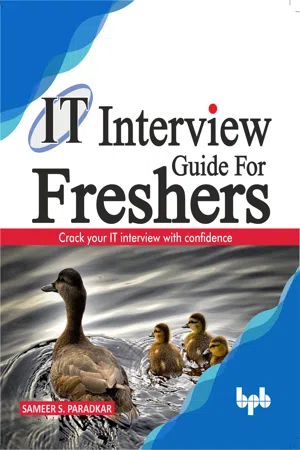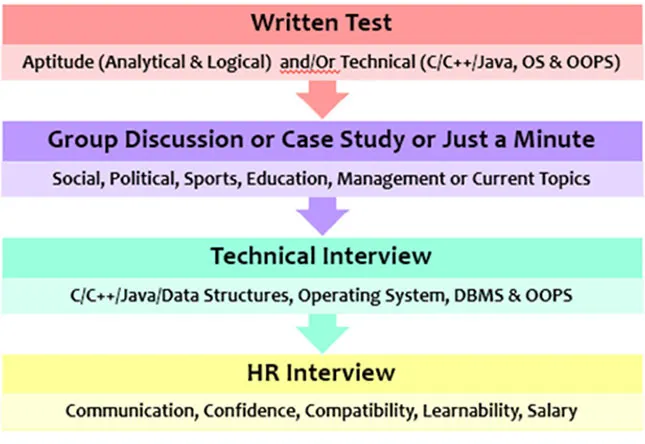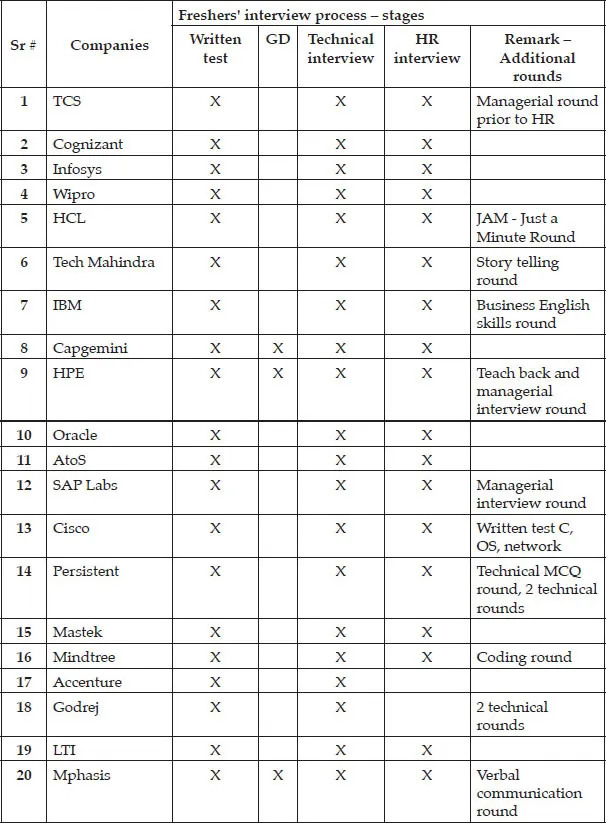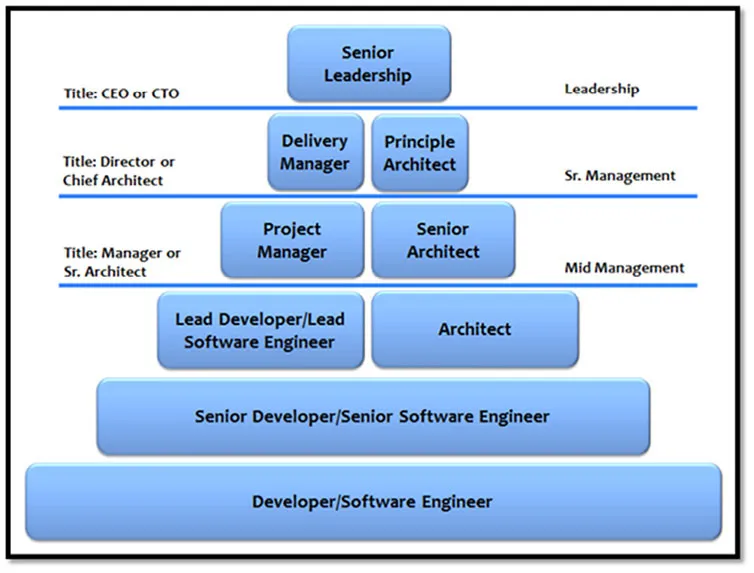
IT Interview Guide for Freshers
Crack your IT interview with confidence
- English
- ePUB (mobile friendly)
- Available on iOS & Android
About this book
Gold mine of critical IT interview Q&A for freshers Key Features
- Understand various best practices, principles, concepts, and guidelines
- Common pitfalls to avoid during interviews
- Trending programming languages including Python and R.
- Tools, best practices, techniques, and processes
- Methodologies and processes for DevOps, microarchitecture, SDLC, APIs, SOA integration
- Best practices and programming standards
- Holistic view of key concepts, principles, and best practices
Description
Are you a fresher looking to pass your first IT interview and get your hands on that dream job of yours? This is the best choice for you to make. By emphasizing on the importance of sufficient preparation, this book will help aspirants prepare for the IT interview process. With this practical hands-on guide, readers will not only learn industry-standard IT interview practices and tips, but will also get curated, situation-specific, and timeline-specific interview preparation techniques that will help them take a leap ahead of others in the queue. This book includes sample questions asked by top IT companies while hiring and the readers can expect a similar set of questions in their interview. The book also offers hints on solving them as you move ahead, and each hint is customized similar to how your actual interview is likely to progress. Whether you are planning to prepare for an interview through a semester for six months or preparing for just a weekend coding competition, this book will have all the necessary information that will lead you to your first successful job. What You Will Learn
- This is a comprehensive book on IT interviews for aspirants with profiles ranging from freshers to experienced (up to four years' experience) and with different backgrounds such as BE, BCA, BSc, BCom, and MCA.
- This reference guide for freshers has a double advantage:
- It will guide them for their interview and discussions.
- It will help interview panels in selecting candidates for their practice/units while bringing in standardization in the selection process.
- This book has more than five hundred questions in eight domains, including a chapter on trending programming languages (Python and R).
- It presents an exhaustive question bank with special emphasis on practical scenarios and business cases.
- It covers all the key domains including data structures, OOPs, DBMS, OS, methodologies and processes, programming languages, and digital technologies.
- The book includes a section on frameworks and methodologies for quality assurance and testing, DevOps, Agile, Scrum, APIs, microservices, and SOA.
- Based on our experience, the assurance is that at least 80% of the content will be discussed during a typical interview.
- The book also has a section on pre- and post-interview preparations.
- The coverage is extensive in terms of depth and breadth of domains addressed in the book. But it can be referred to for selective reading as per the choice of domain.
- The book has more than a hundred diagrams depicting various scenarios, models, and methodologies.
-
Who This Book is For
- Students: IT and other computer science streams
- Freshers from IT and computer science institutes
- Programmers/Software engineers/Developers: 0–4 years' experience
- Interview panels
-
Table of Contents
1. Introduction
2. Written Test & Group Discussion
3. Interview Preparations
4. Data Structure & Algorithms
5. Operating System
6. Object-oriented Programming (OOP)
7. C/C++ Programming
8. Java Programming
9. Database Management System (DBMS)
10. Trending Programming Languages: Python & R
11. Methodologies & Processes
12. HR Round
Frequently asked questions
- Essential is ideal for learners and professionals who enjoy exploring a wide range of subjects. Access the Essential Library with 800,000+ trusted titles and best-sellers across business, personal growth, and the humanities. Includes unlimited reading time and Standard Read Aloud voice.
- Complete: Perfect for advanced learners and researchers needing full, unrestricted access. Unlock 1.4M+ books across hundreds of subjects, including academic and specialized titles. The Complete Plan also includes advanced features like Premium Read Aloud and Research Assistant.
Please note we cannot support devices running on iOS 13 and Android 7 or earlier. Learn more about using the app.
Information
CHAPTER 1
Introduction
Fresher’s interview process (stages)


Written tests
Group discussion, case study round, or Just a Minute (JAM) round
Technical interview
HR round/Managerial interview
Career path for freshers/software engineers
- What could be the career path of a software engineer/programmer?
- What is the future for a programmer/software engineer?
- What are career expectations and options?

Software engineer/developer
- 0-4 years of experience
- Preliminary understanding of the whole SDLC
- Experience in C/C++, Java, or Dot Net frameworks
- Preliminary knowledge of application services and databases
Senior software engineer/senior developer
- 4-10+ years of IT experience
- Deep understanding of a whole SDLC
- Advanced knowledge in C/C++, Java, or Dot Net frameworks
- Deep knowledge of application services and database
- Comfortable working in any application domain
Lead developer or architect
- 7-10+ years of IT experience
- Similar expertise as a senior developer
- Lead developer: Transitionary role into an architect or mid-level manager
- Architect: Non-transitionary technical role
Project Managers/Sr. Architects – mid-management
- Titles include Project or Product Manager or Sr Architects
- 7-10+ years of IT experience
- Commun...
Table of contents
- Cover Page
- Title Page
- Copyright Page
- Dedication
- About the Author
- Acknowledgement
- Preface
- Errata
- Table of Contents
- 1. Introduction
- 2. Written Tests and Group Discussions
- 3. Interview Preparations
- 4. Data Structures and Algorithms
- 5. Operating System
- 6. Object-oriented Programming (OOPs)
- 7. C and C++ Programming
- 8. Java Programming
- 9. Database Management System
- 10. Trending Languages– Python and R Programming
- 11. Methodologies and Processes
- 12. HR Round
- Index